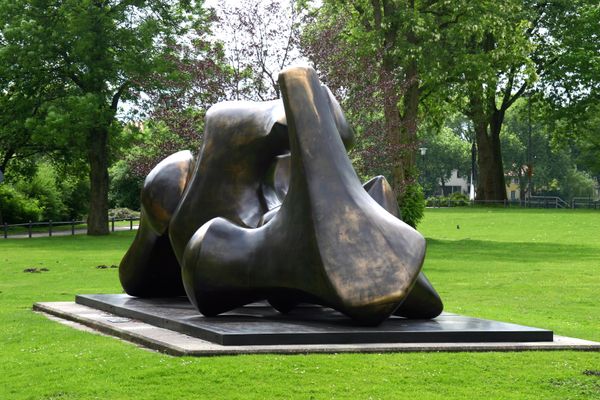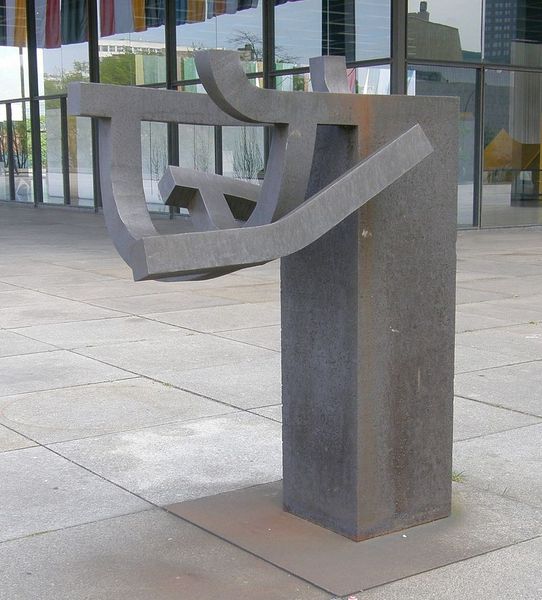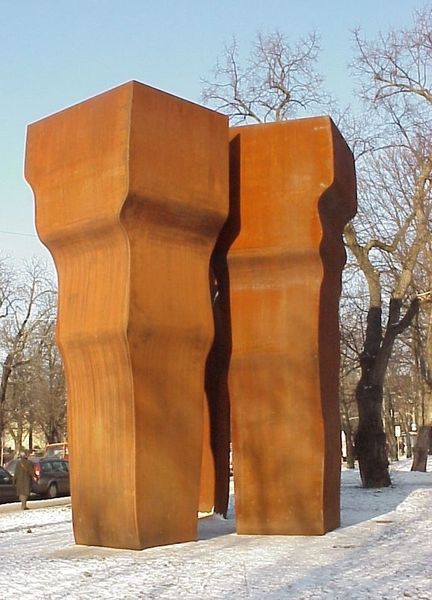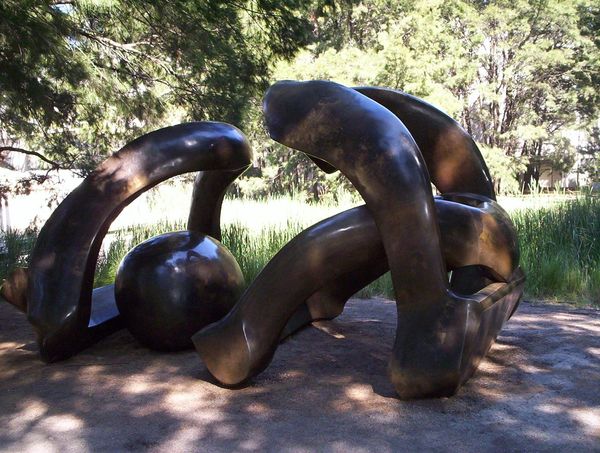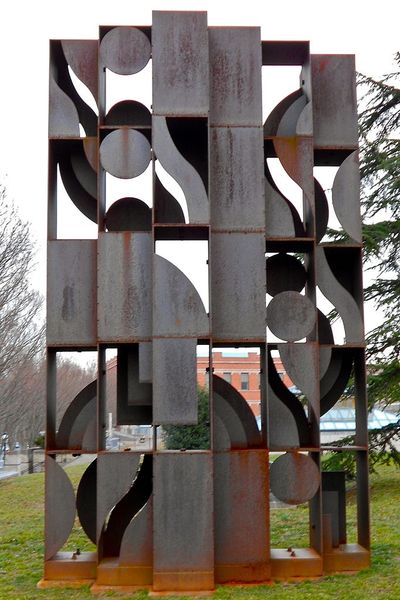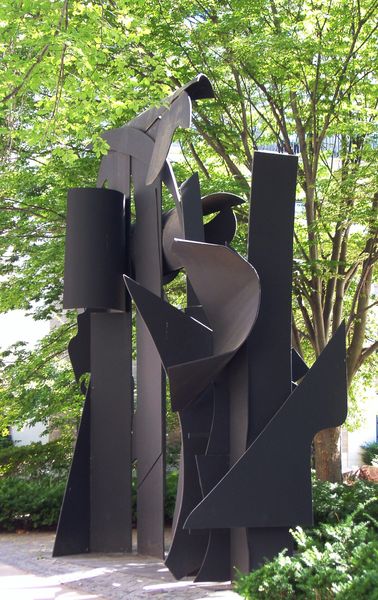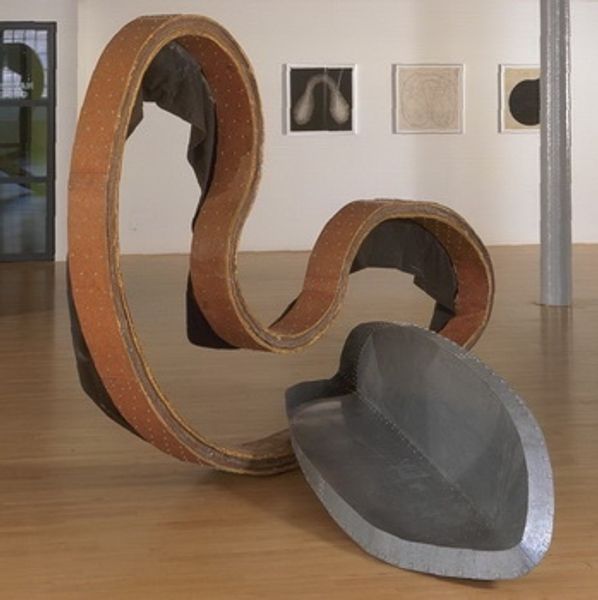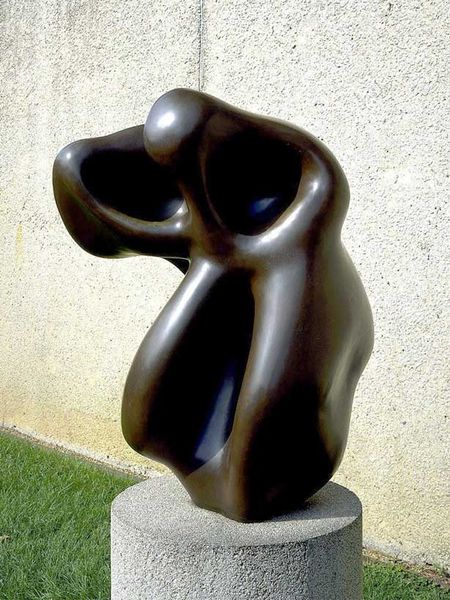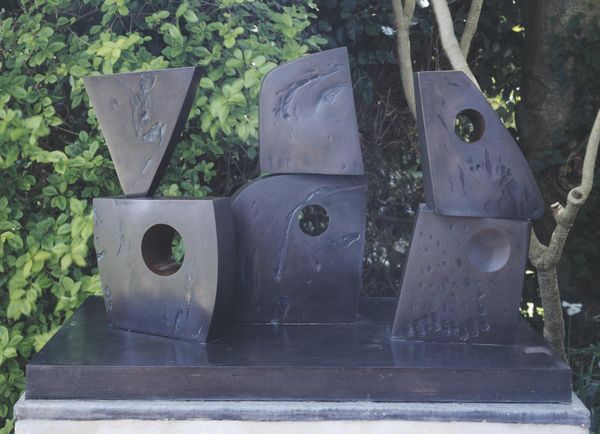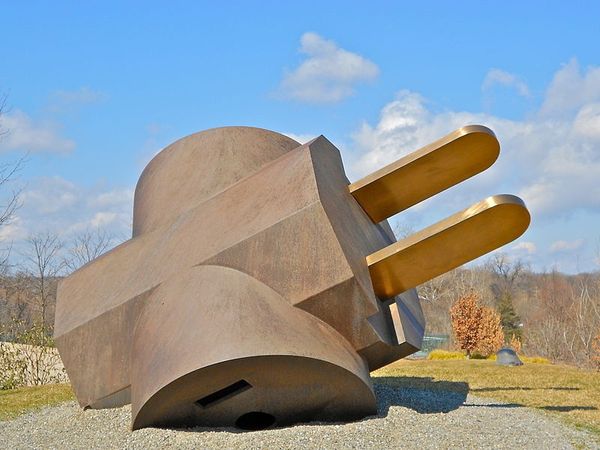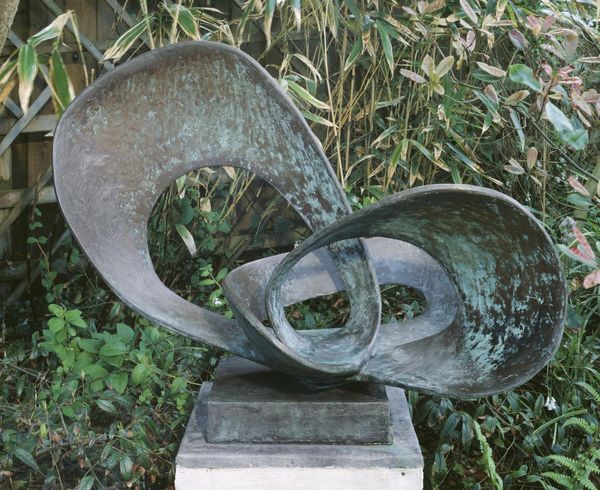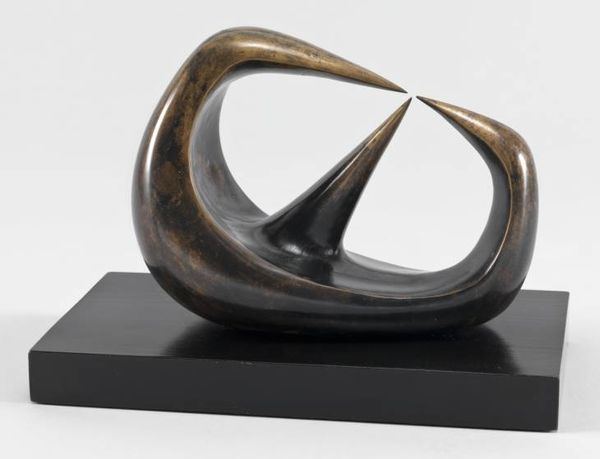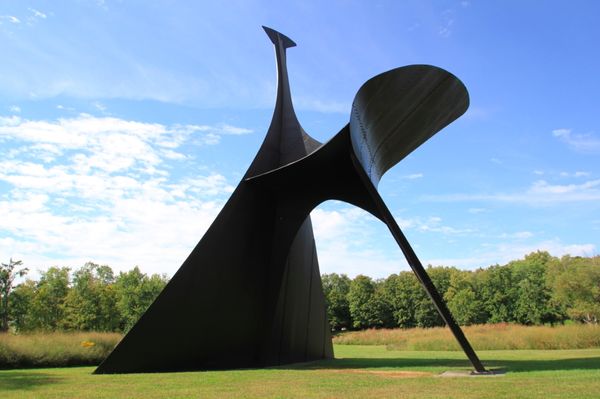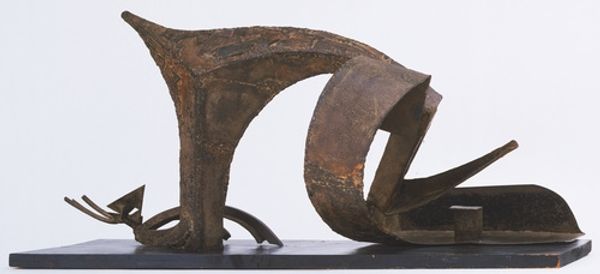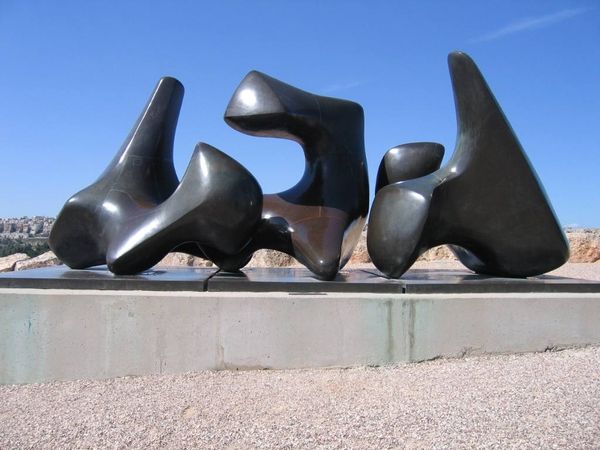
bronze, public-art, sculpture, site-specific
#
abstract-expressionism
#
bronze
#
public-art
#
form
#
sculpture
#
site-specific
#
abstraction
#
the-seven-and-five-society
#
modernism
Copyright: Henry Moore,Fair Use
Here stands "Two Forms," a sculpture by Henry Moore. The biomorphic bronze presents a study in contrasts, where mass meets void and the rough texture of the material plays against the smooth, sinuous curves of the forms. Moore's sculpture operates within a semiotic system of signs, where the organic shapes evoke the human body, yet resist literal representation. The negative space cut through the sculpture is as crucial as the bronze itself, challenging traditional notions of sculpture as solid mass. This interplay between presence and absence invites us to reconsider our perception of form and space. Through this exploration of positive and negative forms, Moore destabilizes fixed meanings, engaging with new ways of thinking about space and perception. The sculpture's scale and placement in the landscape further contribute to this dialogue, inviting the viewer to engage with the work from multiple perspectives. Ultimately, "Two Forms" invites us to consider how art can challenge and expand our understanding of the world around us.
Comments
No comments
Be the first to comment and join the conversation on the ultimate creative platform.
